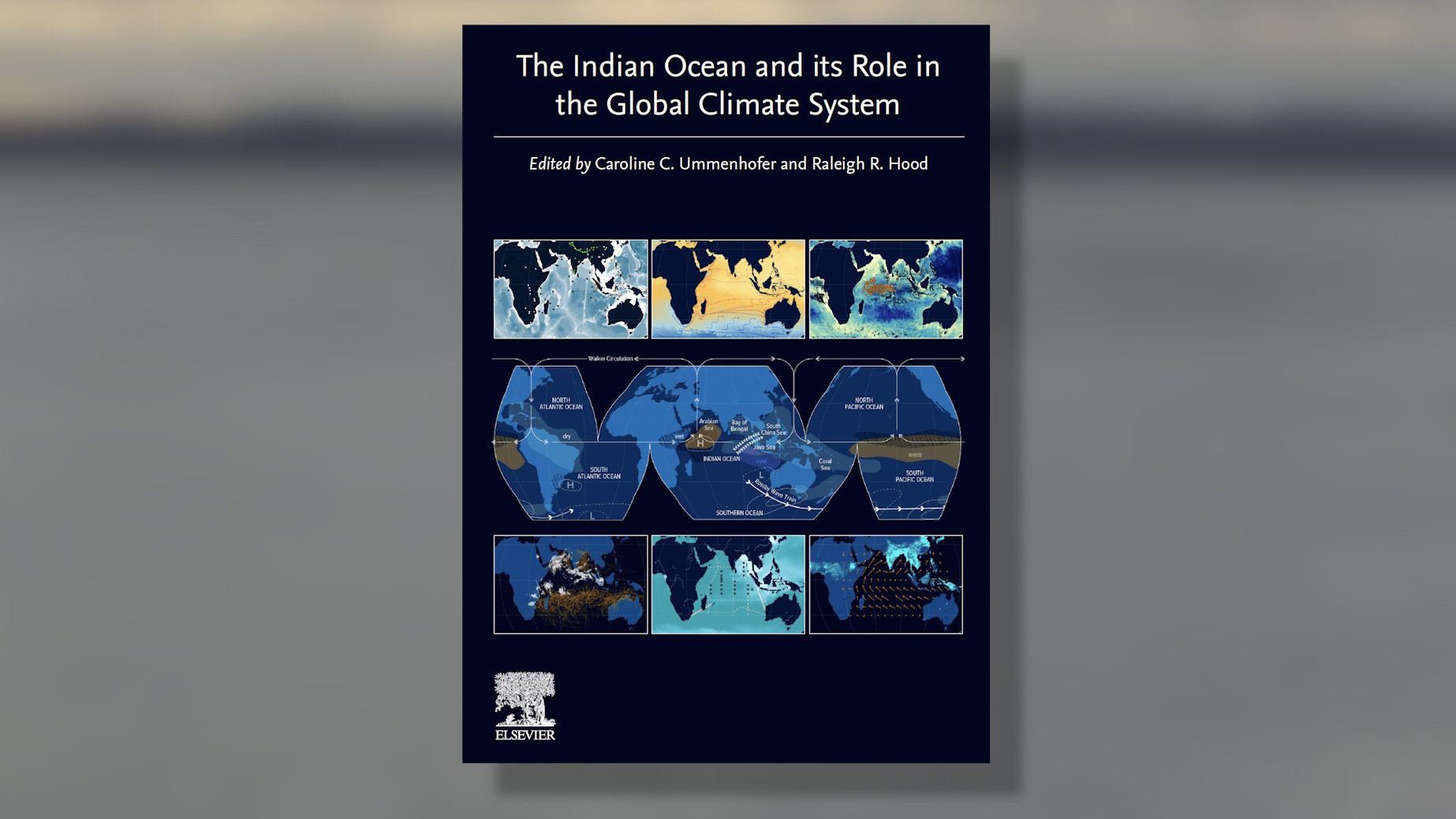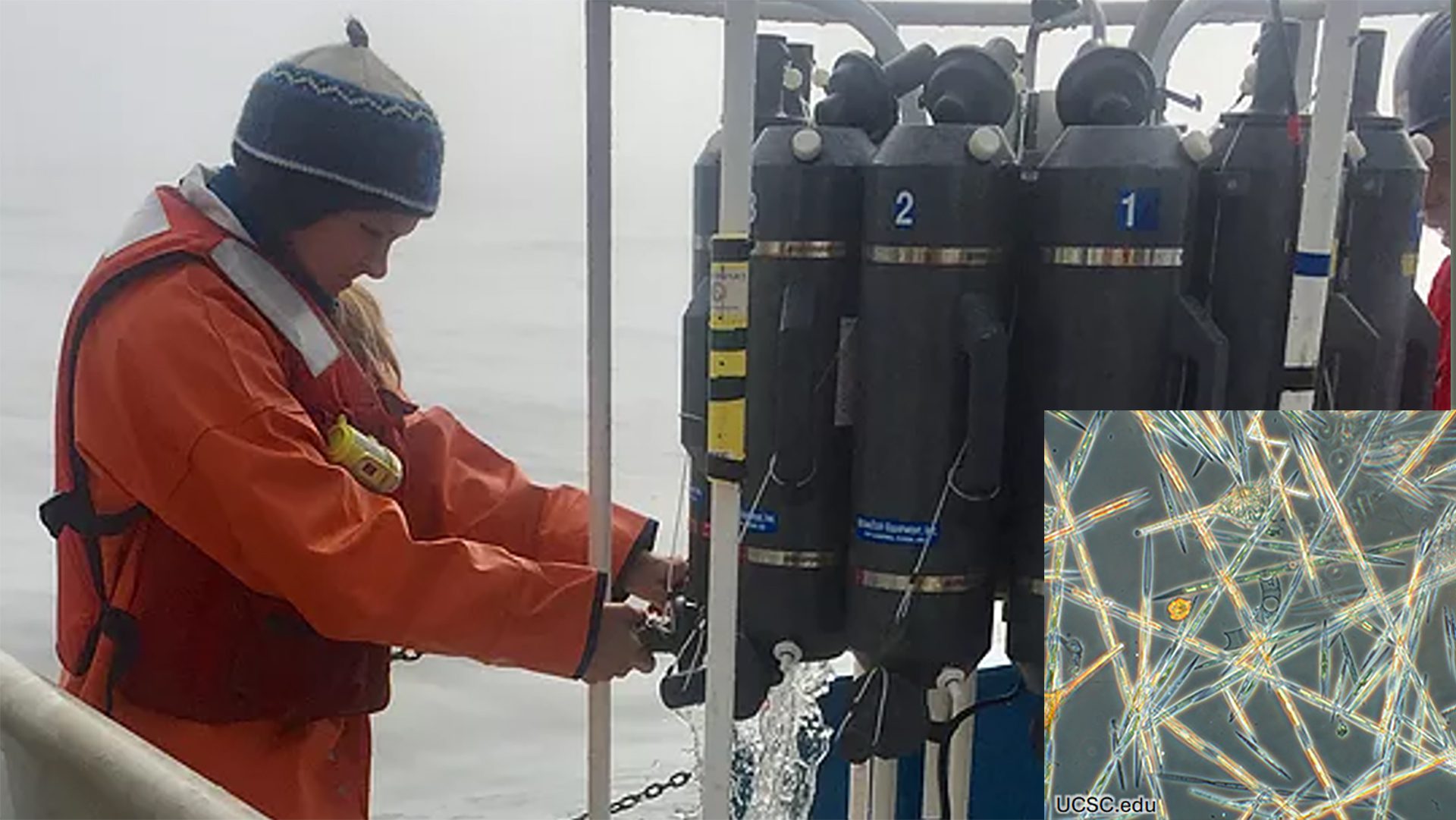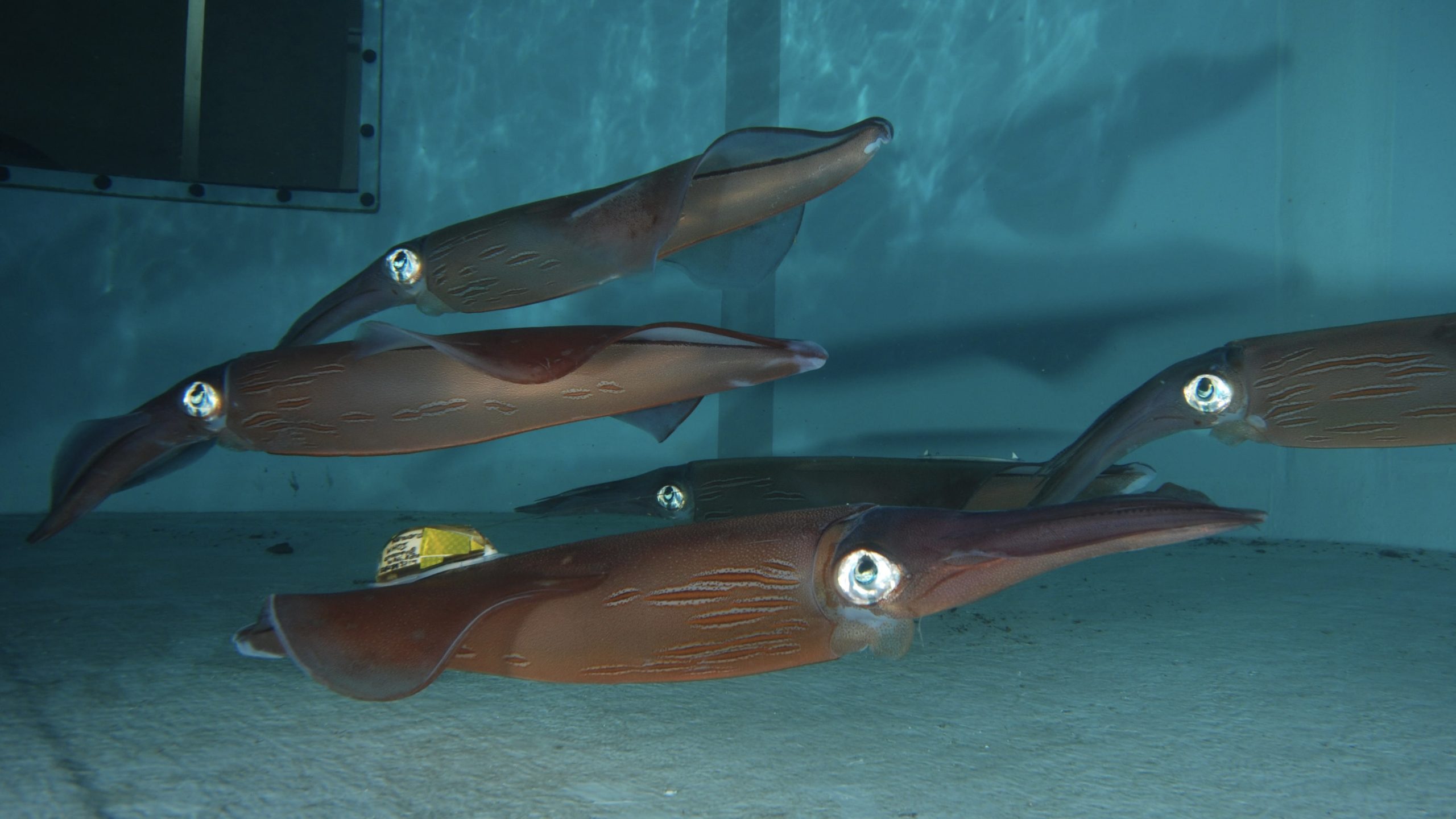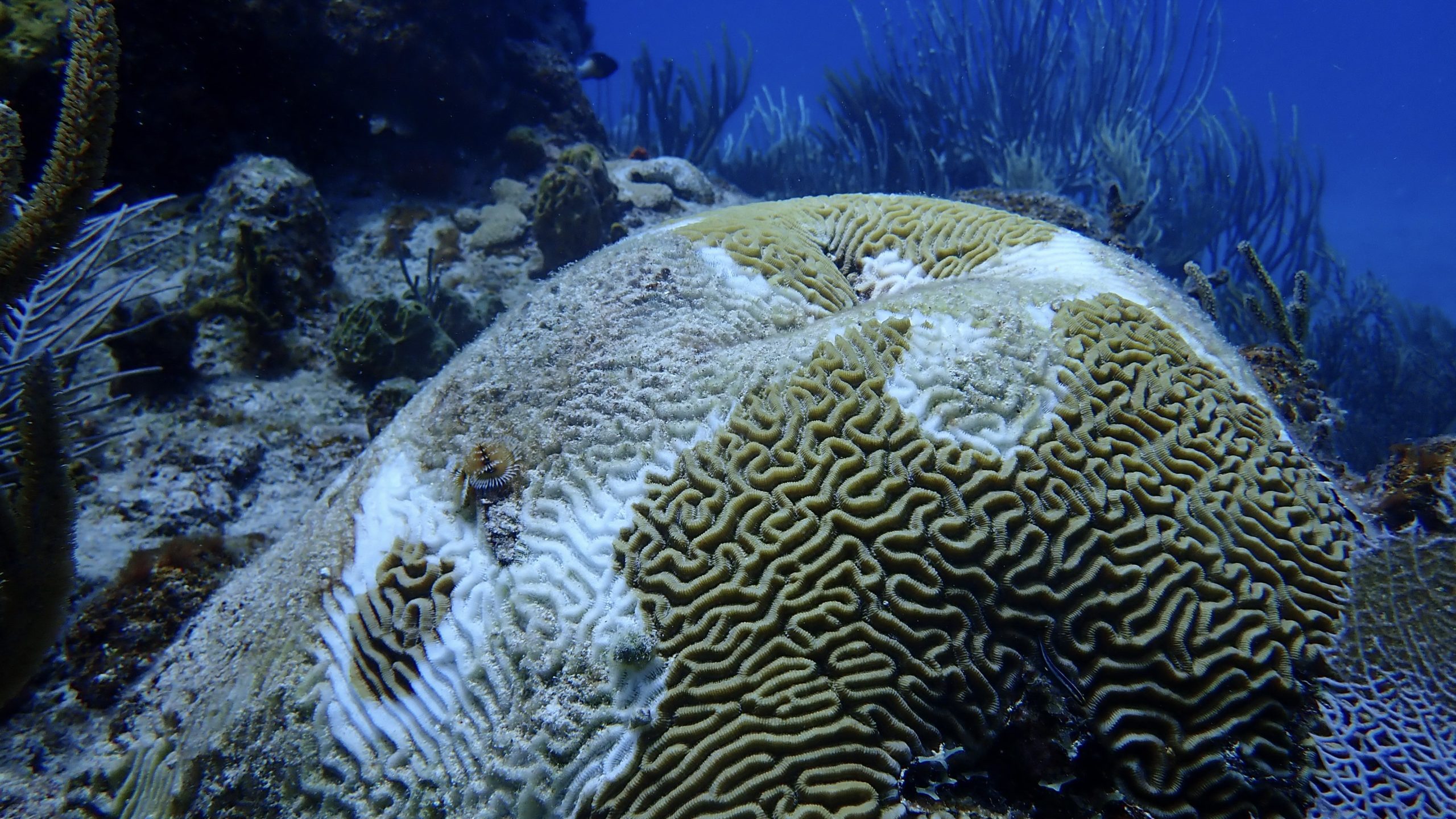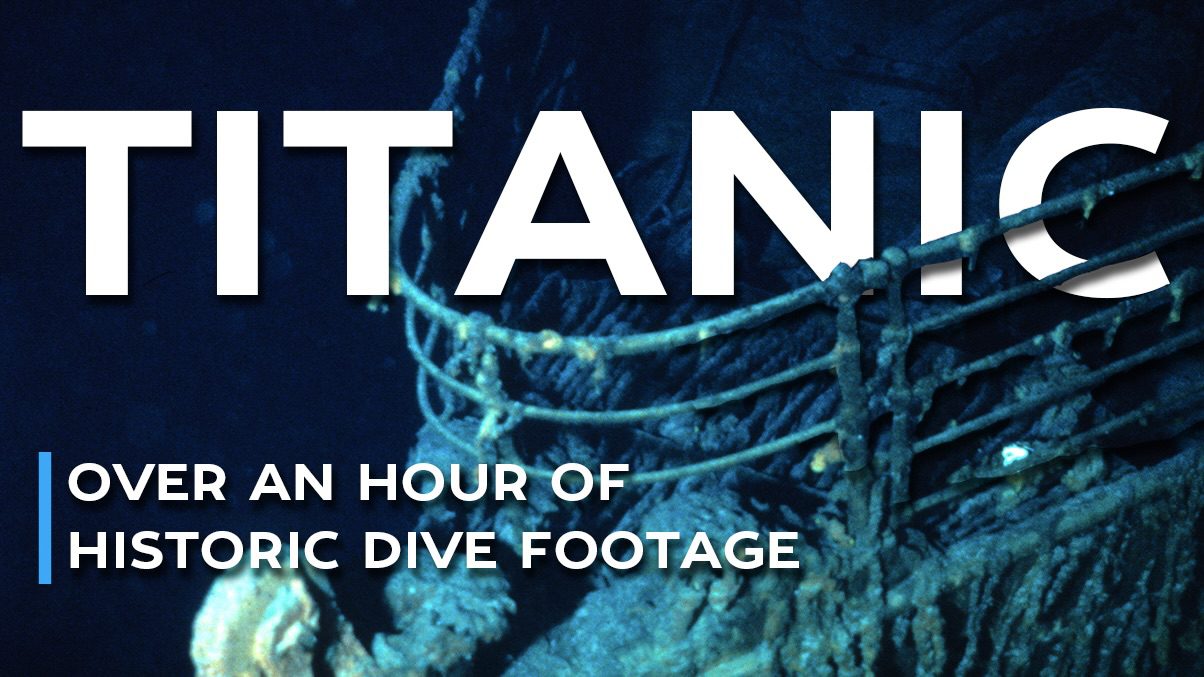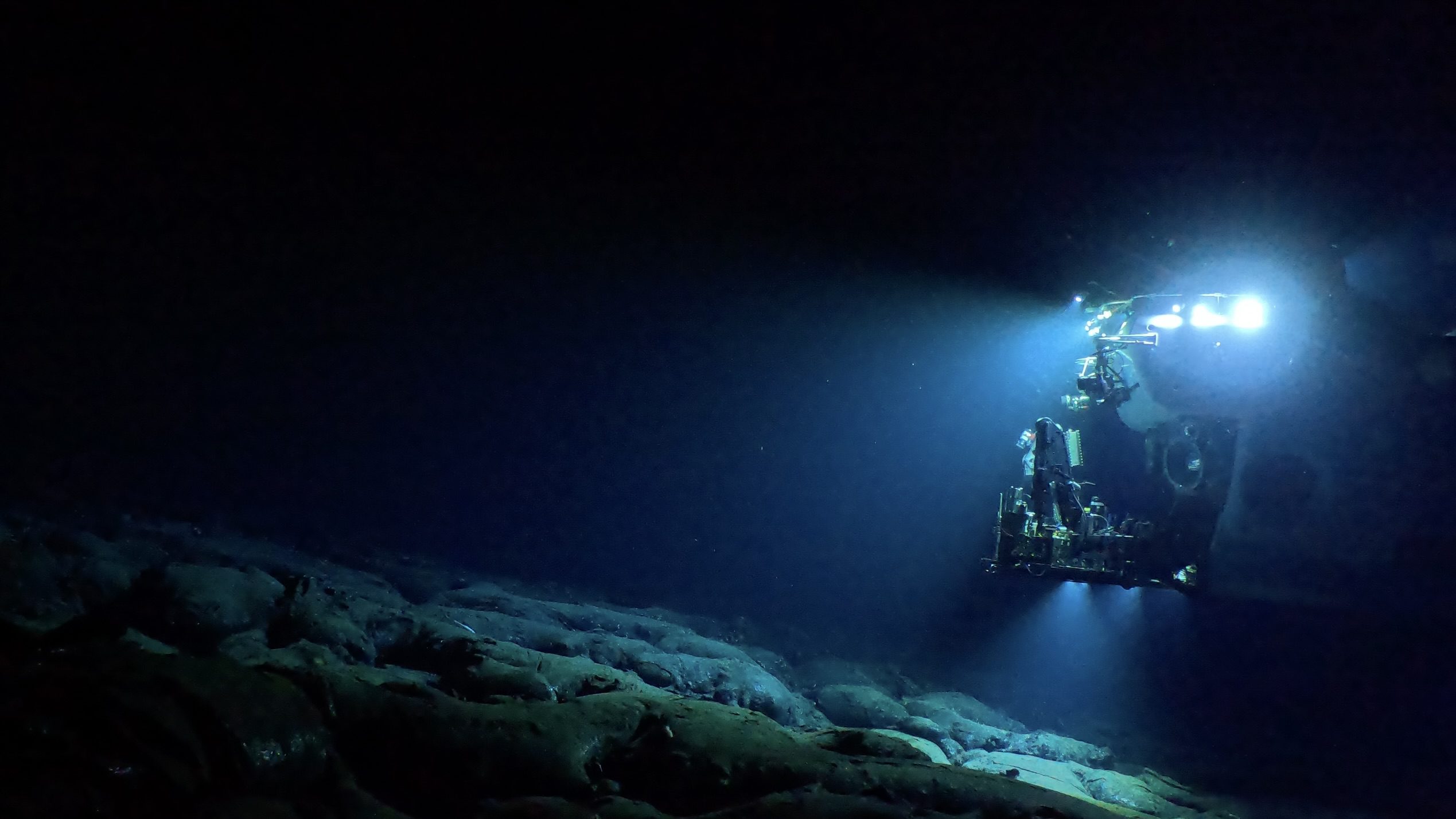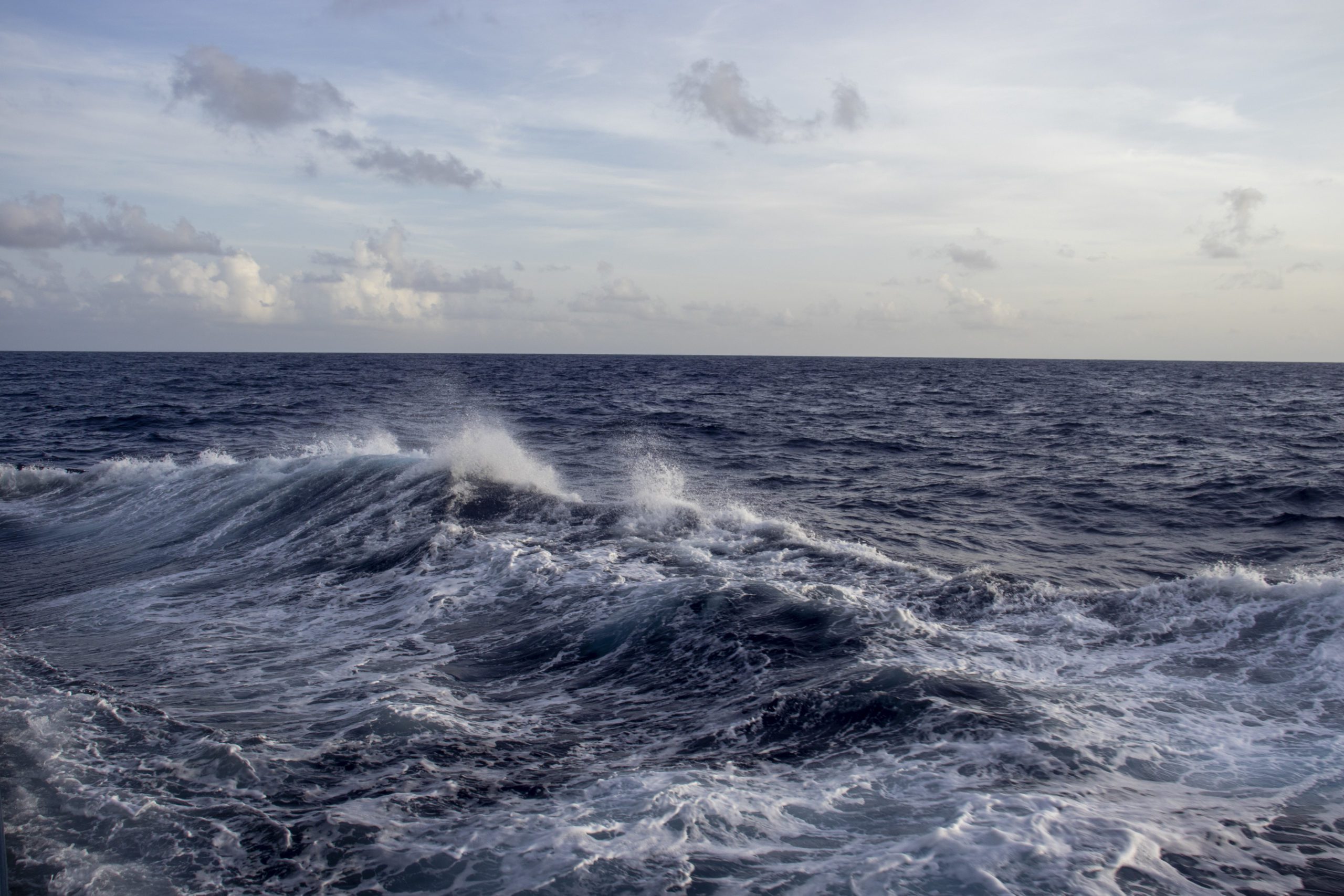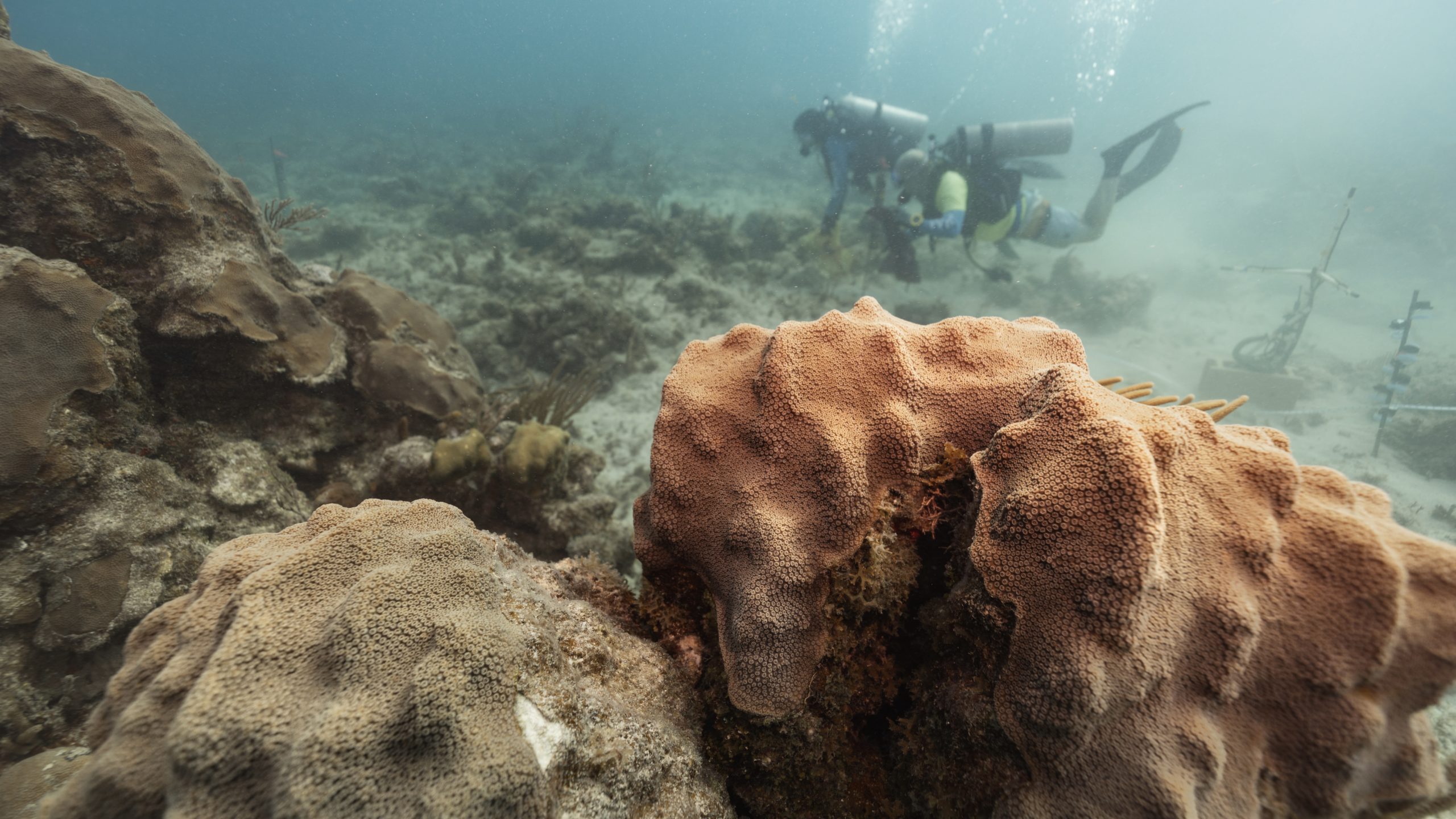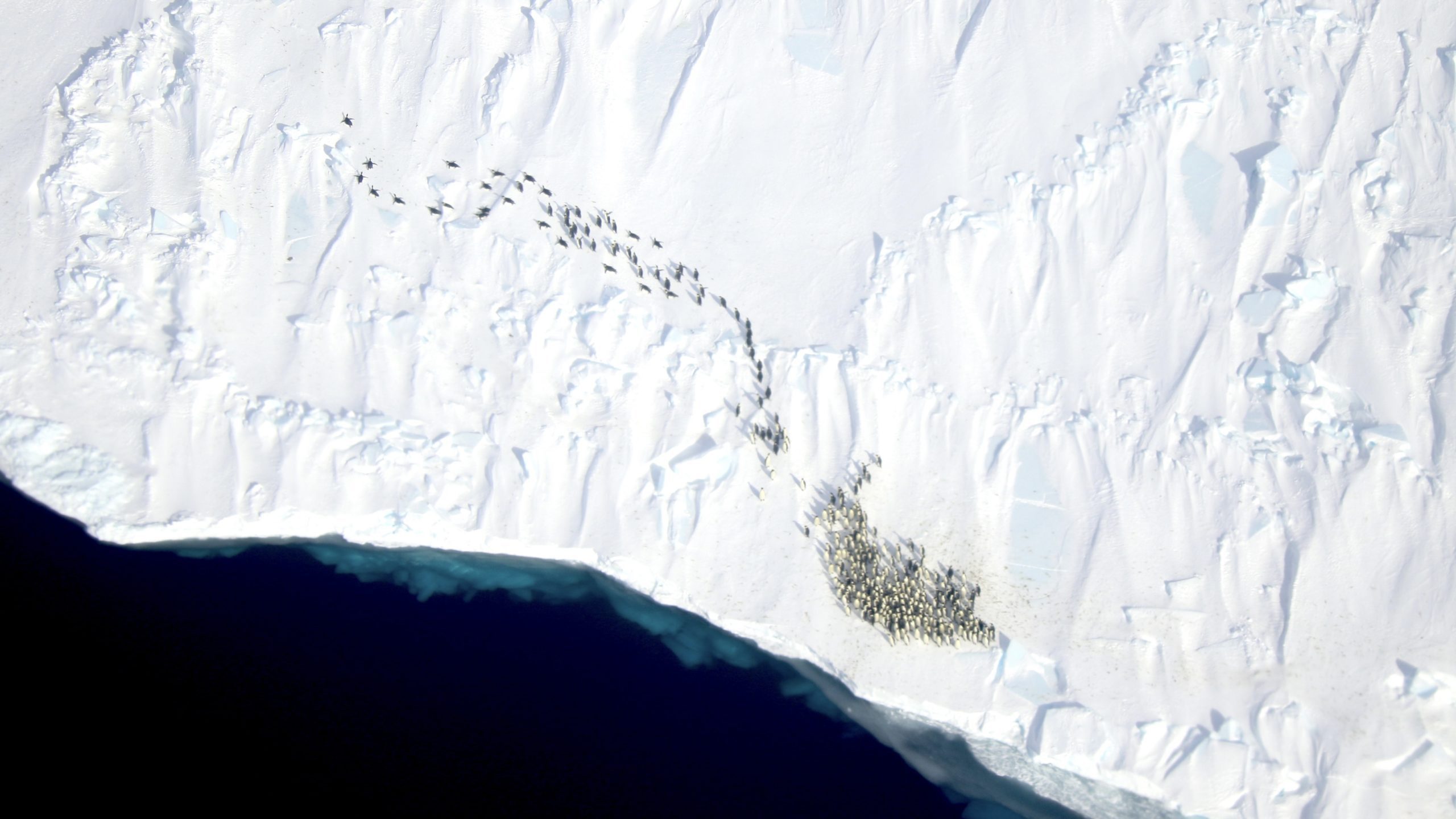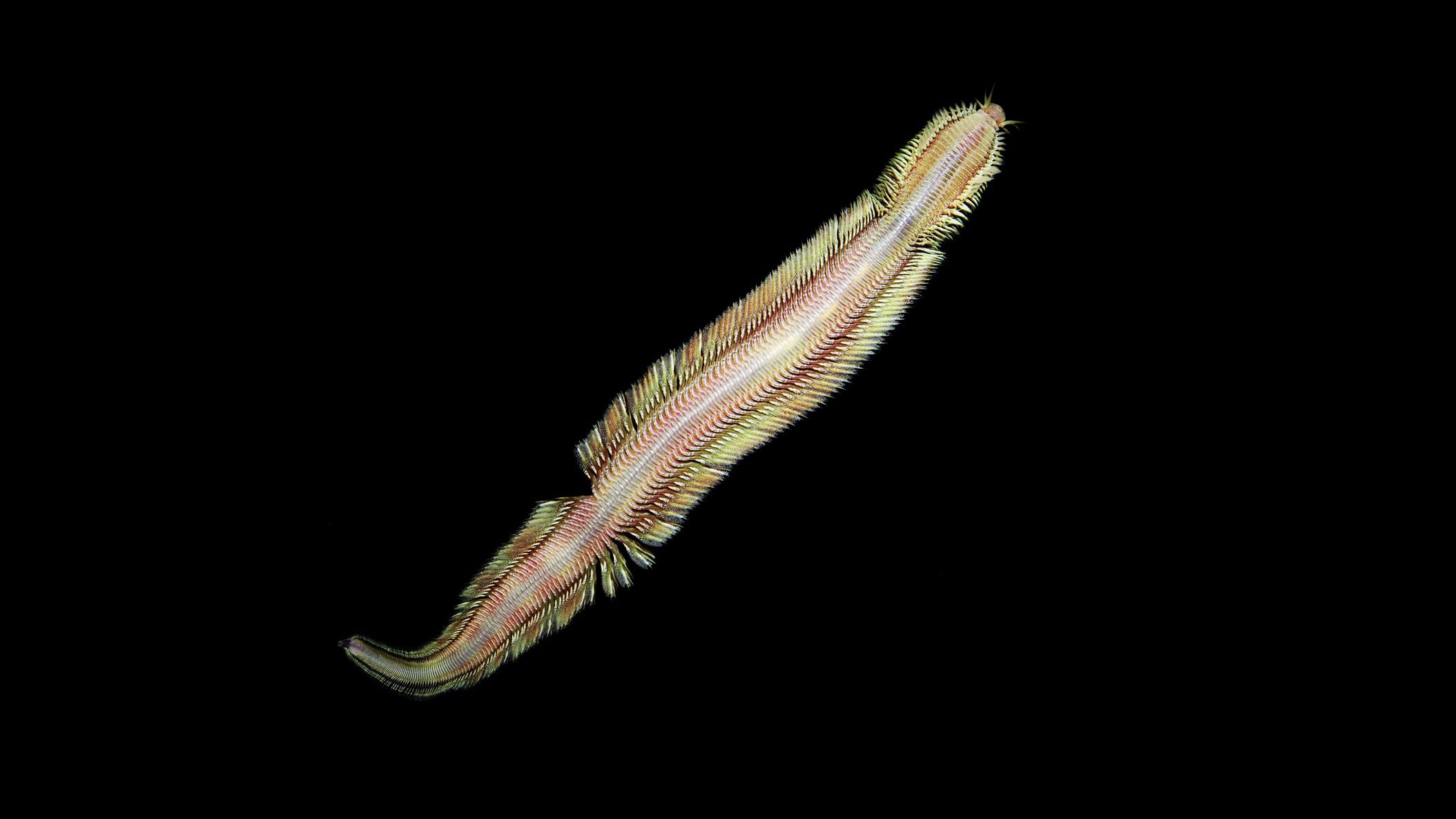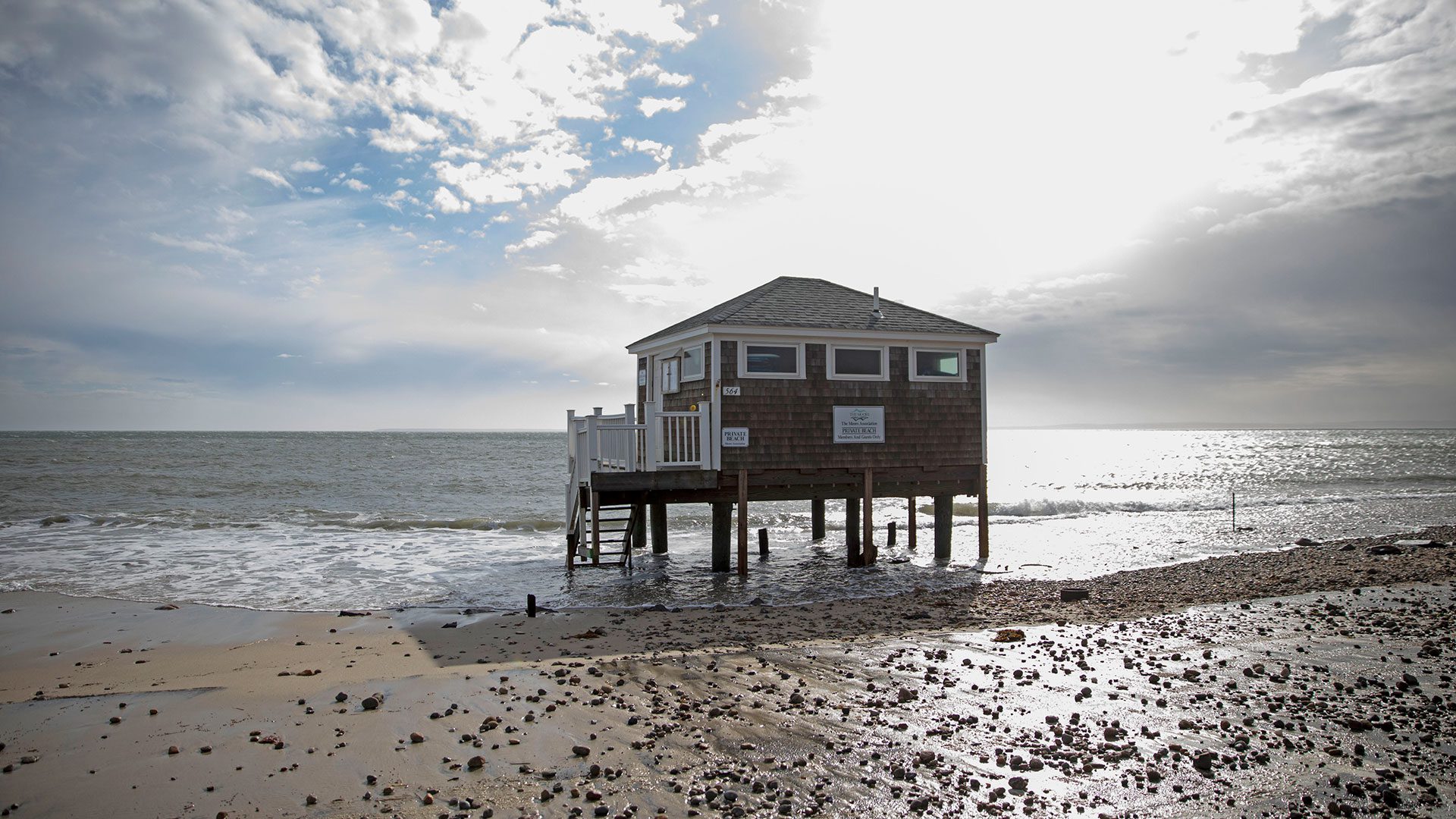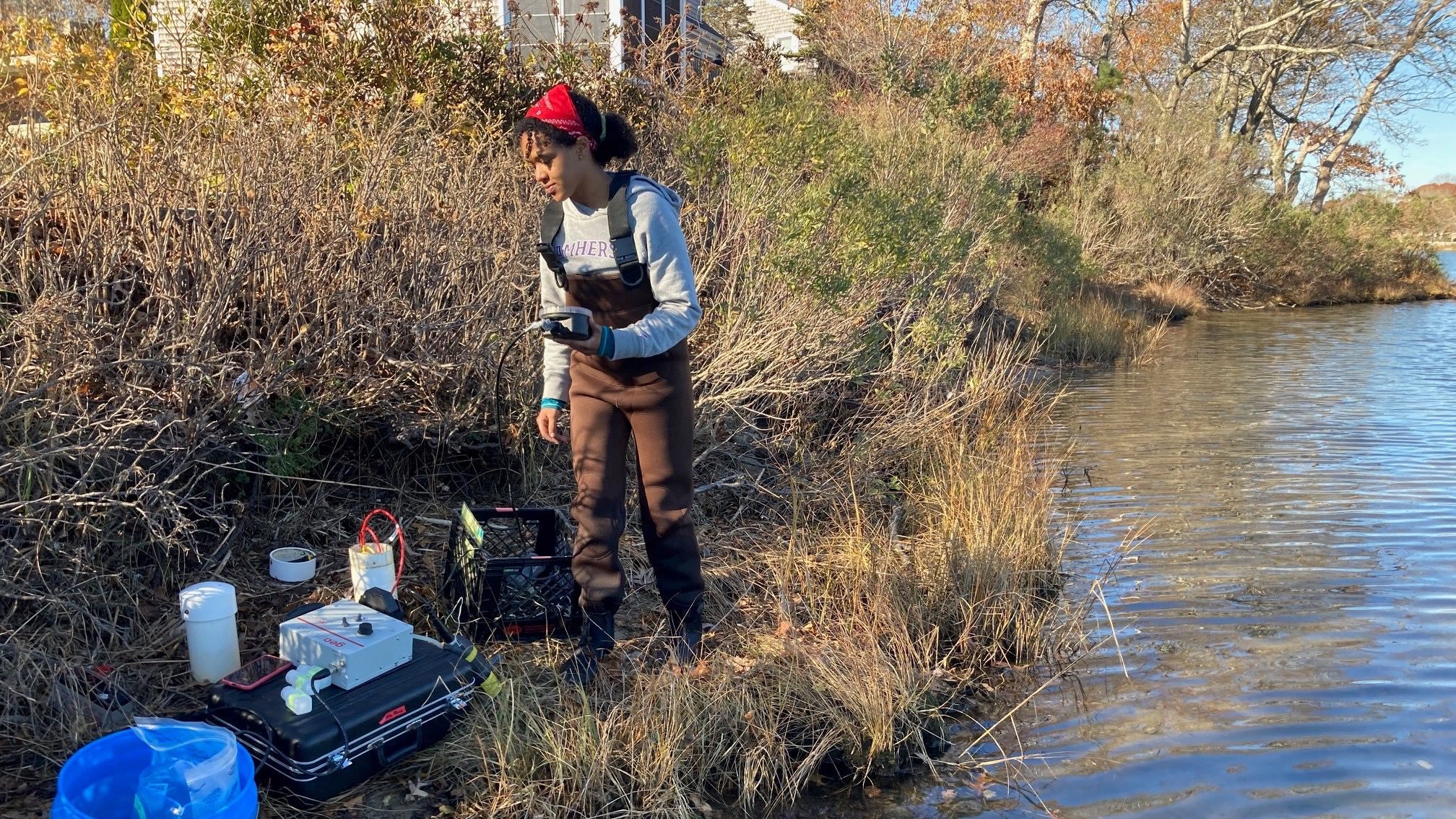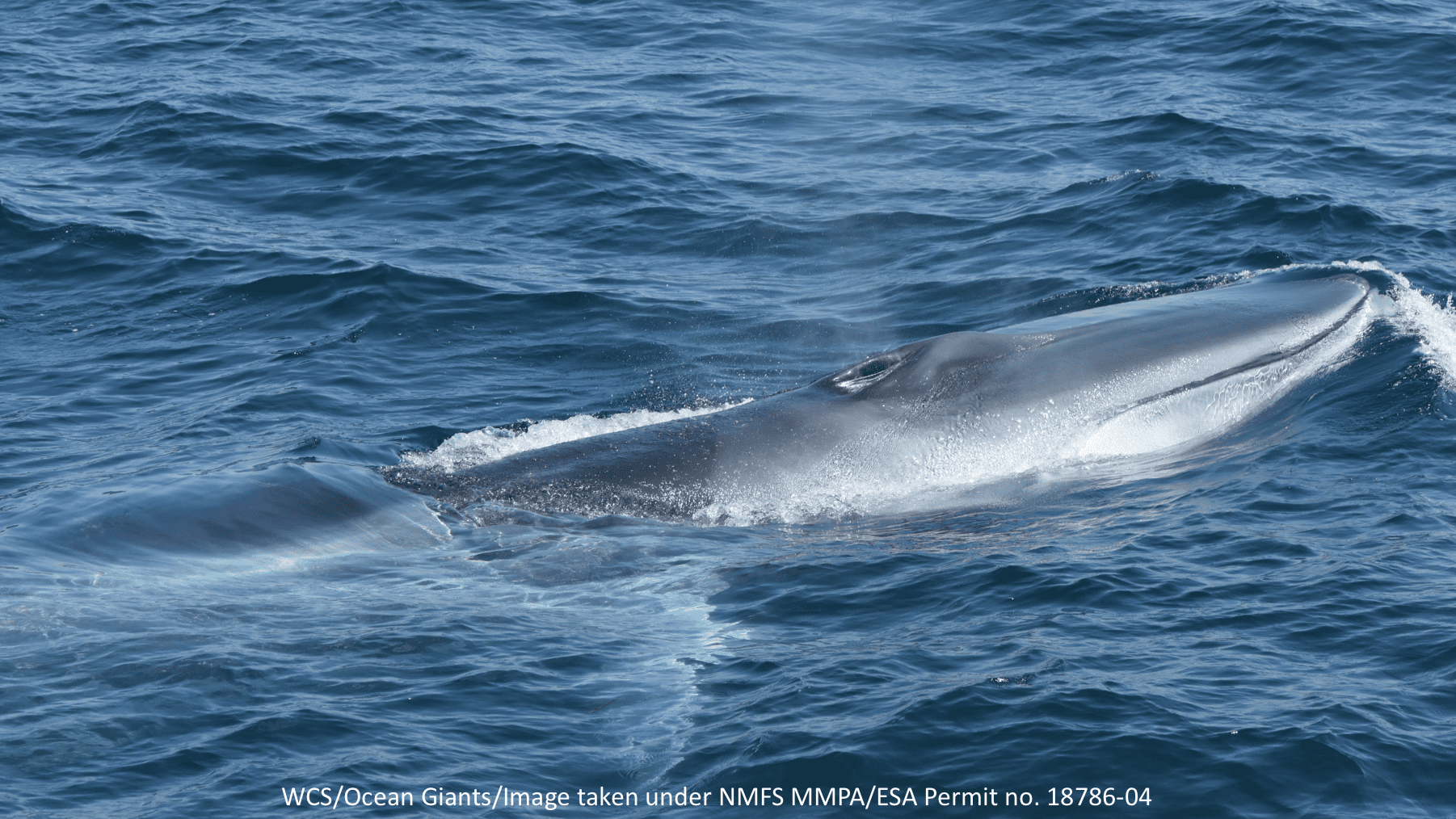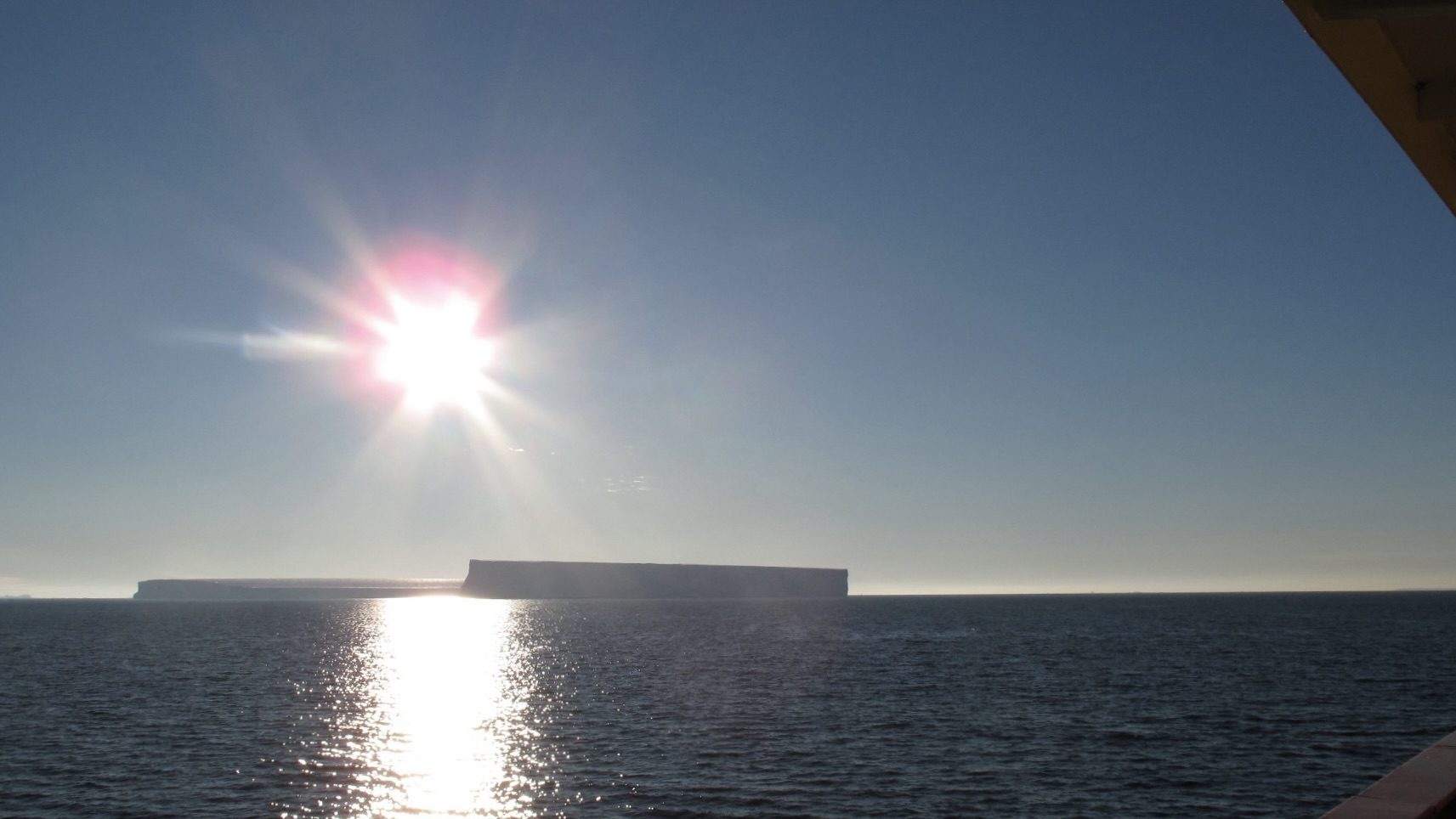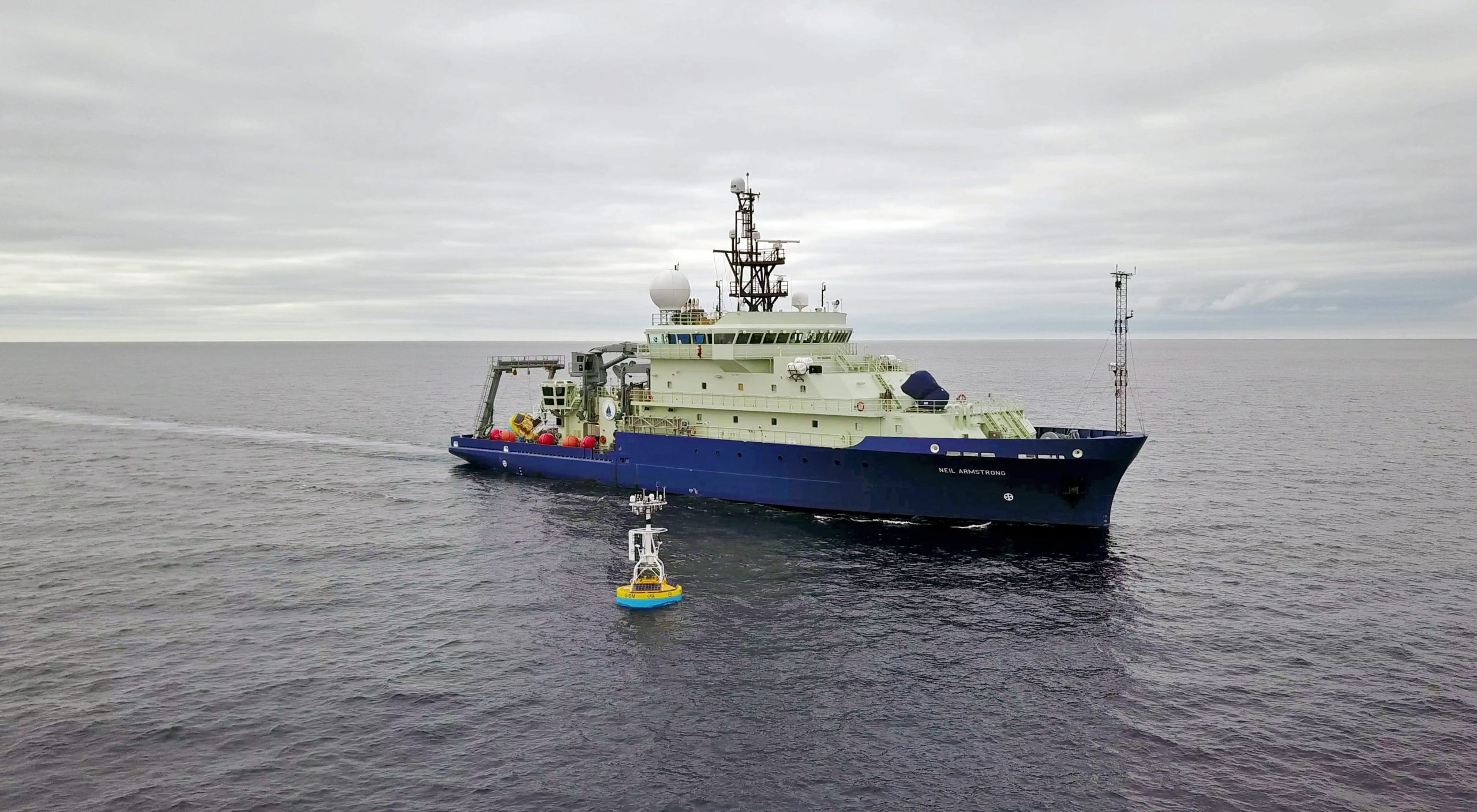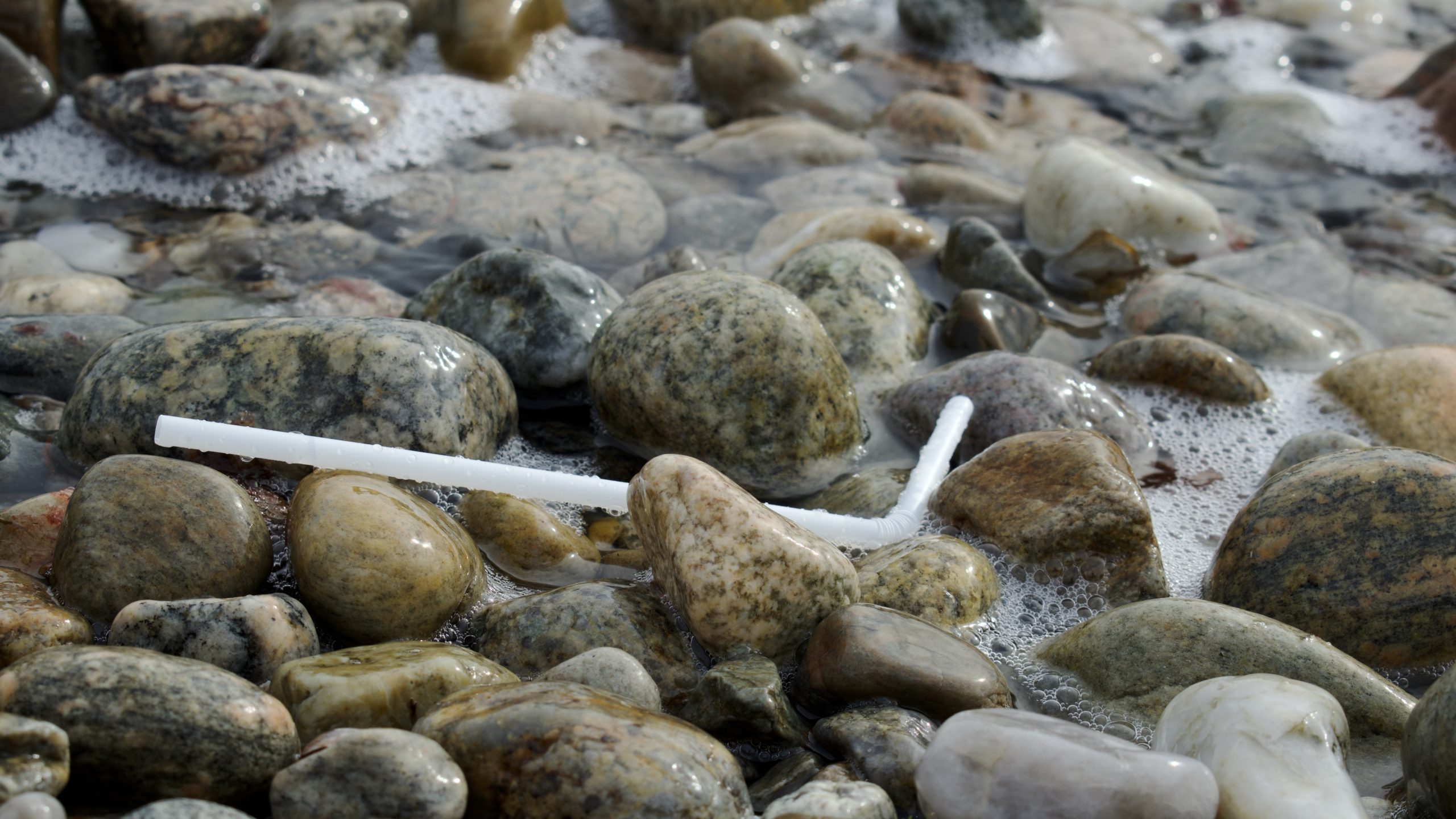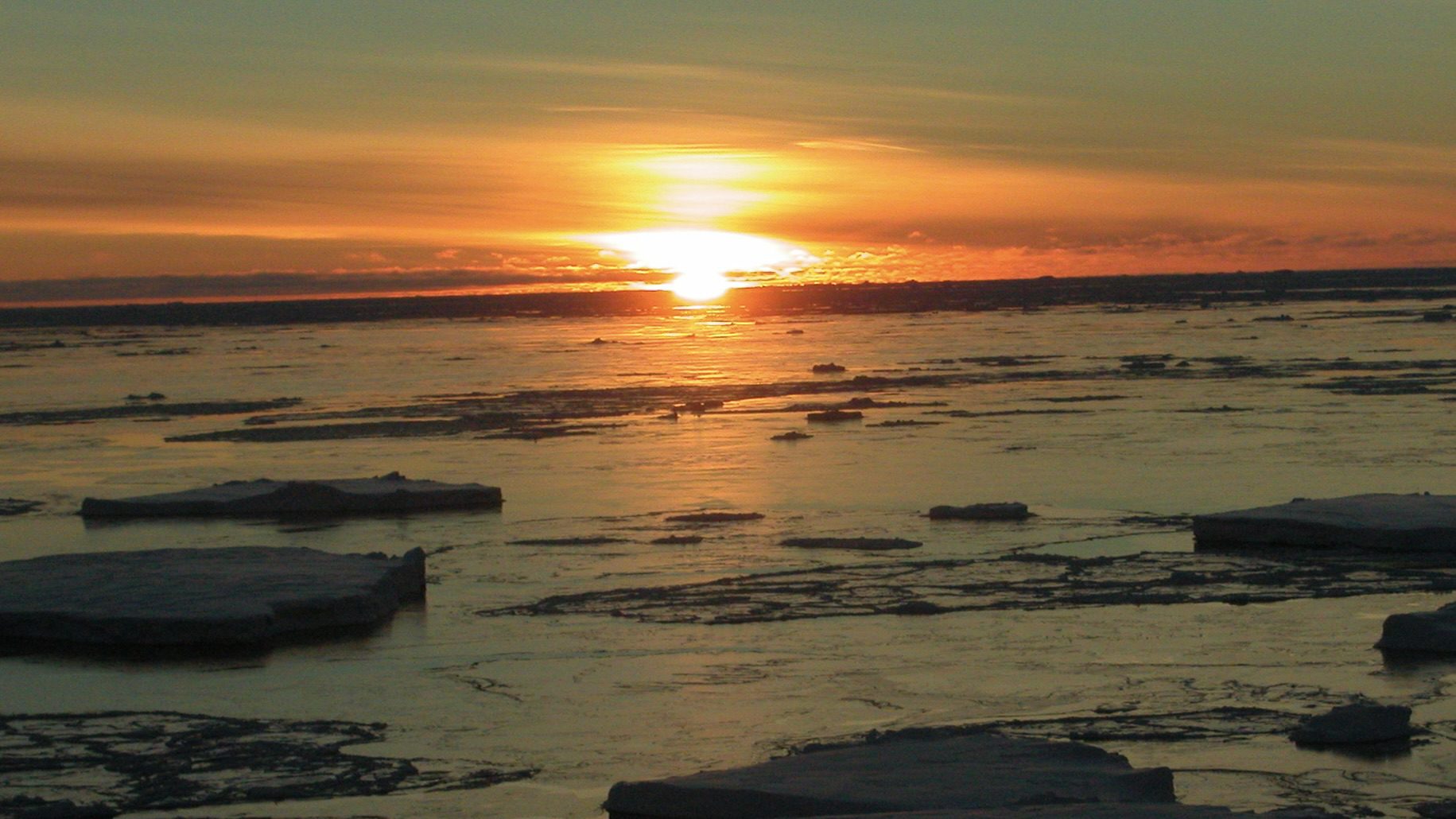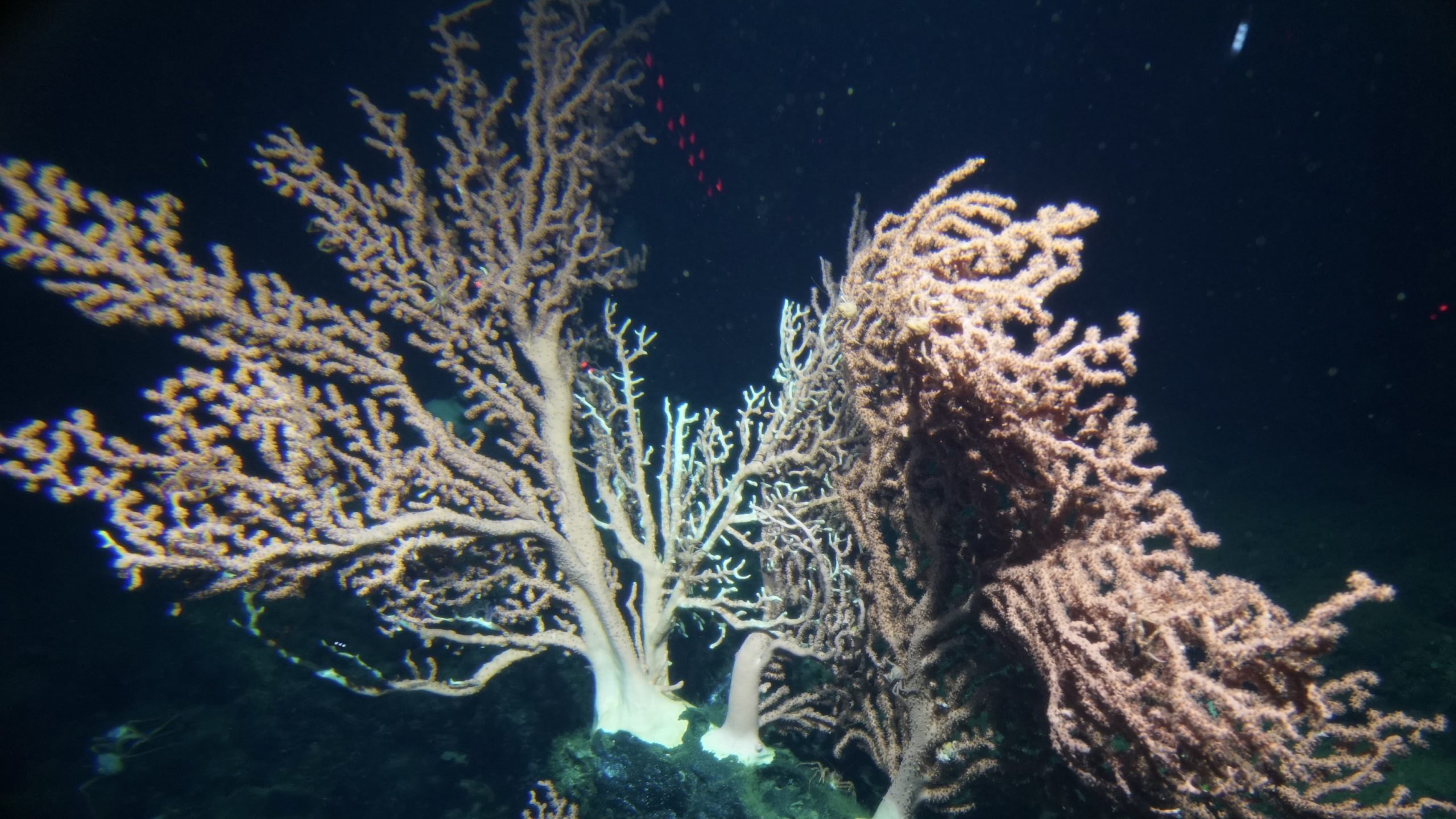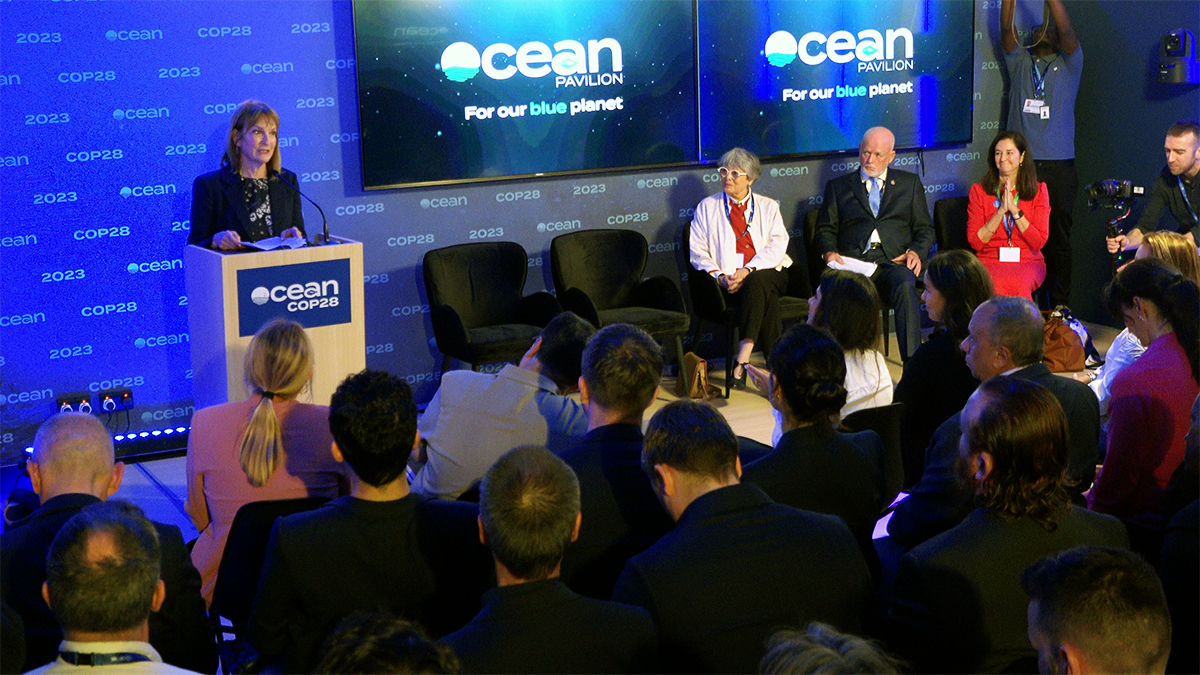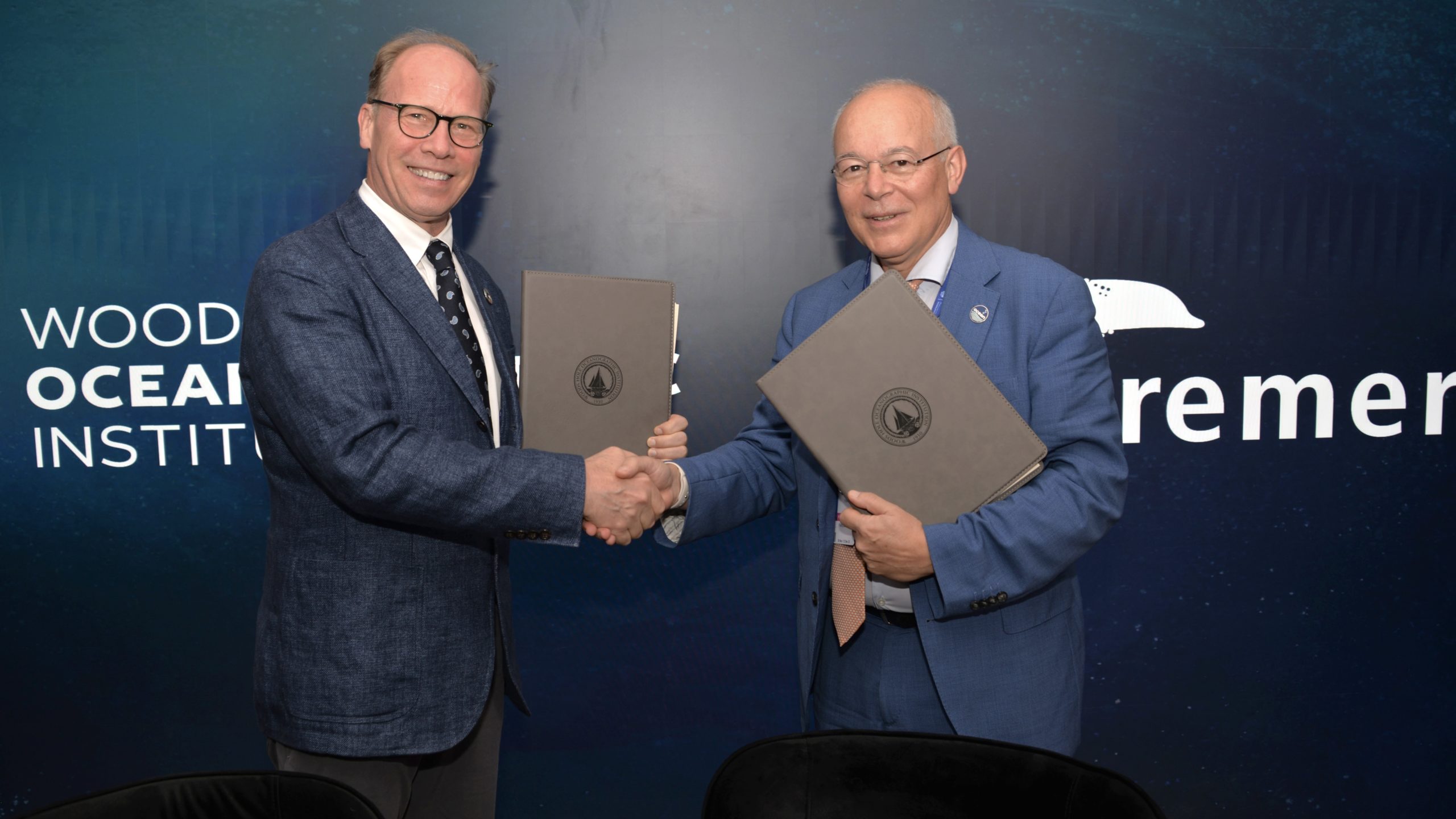News Releases
WHOI Physical Oceanographer publishes peer-reviewed book about the Indian Ocean
The Indian Ocean and Its Role in the Global Climate System takes a deep dive into warming trends and extreme weather events
Read MoreWoods Hole Center for Oceans and Human Health Receives Additional Five Years of Funding
The National Institute of Environmental Health Sciences (NIEHS) and National Science Foundation (NSF) have announced that the Woods Hole Oceanographic Institution (WHOI) will receive funding to continue operating the Woods Hole Center for Oceans and Human Health (WHCOHH).
Read MoreA new tagging method for fragile marine species
Newly developed bioadhesive sensors (BIMS) are effective and less invasive than traditional tagging. Scientists can attach them with a thin layer of dried-hydrogel in less than 20 seconds.
Read MoreStudy: eDNA methods give a real-time look at coral reef health
Researchers from WHOI studied the microbes in coral reef water by examining eight reefs in the U.S. Virgin Islands over a period of seven years, which included periods of hurricane and coral disease disturbance.
Read MoreWoods Hole Oceanographic Institution nominated for two Webby Awards
Woods Hole Oceanographic Institution (WHOI) has been nominated for two Webby Awards for its work in sharing mostly never-before-seen footage of the wreckage of the RMS Titanic.
Read MoreFive new hydrothermal vents discovered in the eastern tropical Pacific Ocean
Ocean scientists discovered the new deep-sea hydrothermal vent sites on the seafloor at 2,550 meters (8366 feet, or 1.6 miles) depth.
Read MoreSea Surface Temperature Research Provides Clear Evidence of Human-Caused Climate Change
New oceanic research provides clear evidence of a human “fingerprint” on climate change and shows that specific signals from human activities have altered the seasonal cycle amplitude of sea surface temperatures.
Read MoreSonic Youth: Healthy Reef Sounds Increase Coral Settlement
Researchers at WHOI demonstrated that replaying healthy reef sounds could potentially be used to encourage coral larvae to recolonize damaged or degraded reefs.
Read MoreHigh Resolution Imagery Advances the Ability to Monitor Decadal Changes in Emperor Penguin Populations
High resolution satellite imagery and field-based validation surveys have provided the first multi-year time series documenting emperor penguin populations.
Read MoreNew Deep-Sea Worm Discovered at Methane Seep Off Costa Rica Named after Alvin Pilot Bruce Strickrott
The creature raises the number of new species found by scientists studying these seemingly inhospitable ecosystems to 48 Woods Hole, Mass. — Woods Hole Oceanographic Institution (WHOI), along with…
Read MoreNew federal funding to accelerate ocean-climate resilience
WHOI-led team receives funding to help small businesses prepare communities across the nation for climate change
Read MoreWHOI Sea Grant commits $1.7 million to coastal research
The funding will support five major projects from watershed contaminant monitoring to data collection for sustainable fisheries and more
Read MoreCollaboration to monitor sea, weather, and wildlife
The U.S. DOE, WHOI, and partners to collect data near an East Coast offshore wind site
Read MoreNew Research Reveals: The New York Bight Is an Important Year-Round Habitat for Endangered Fin Whales
Researchers aim to use their science to help inform best practices and strategies to better protect fin whales in waters off NY and NJ Woods Hole, Mass. – The New…
Read MoreASLO honors Elizabeth B. Kujawinski with the 2024 G. Evelyn Hutchinson Award
Woods Hole, Mass. — Each year, the Association for the Sciences of Limnology and Oceanography (ASLO) honors scientists for their outstanding achievements in aquatic science research, service, and education. The…
Read MoreResearchers Studying Ocean Transform Faults, Describe a Previously Unknown Part of the Geological Carbon Cycle
Woods Hole, Mass. – Studying a rock is like reading a book. The rock has a story to tell, says Frieder Klein, an associate scientist in the Marine Chemistry &…
Read MoreVitamin B12 adaptability in Antarctic algae has implications for climate change
Woods Hole, Mass. — Vitamin B12 deficiency in people can cause a slew of health problems and even become fatal. Until now, the same deficiencies were thought to impact certain…
Read MoreWHOI Receives $25 Million to Accelerate Search for Ocean-based Climate Solutions
Major funding commitment from board chair Paul Salem comes amidst increased attention on ocean’s role in climate and growing pace of funding from public and private sources
Read MoreSome Plastic Straws Degrade Quicker Than Others, New Study Shows
WHOI researchers determine lifetimes of drinking straws in the coastal ocean and develop a prototype bioplastic straw that degrades even faster than paper
Read MoreStudy says ice age could help predict oceans’ response to global warming
Woods Hole, MA – A team of scientists led by a Tulane University oceanographer and the Woods Hole Oceanographic Institution (WHOI) has found that deposits deep under the ocean floor…
Read MoreA new way of looking at plastics
WHOI researchers develop a new sustainability metric for plastic products
Read MoreNew Study: Deep Sea Sensor Reveals That Corals Produce Reactive Oxygen Species
A new sensor on the submersible Alvin discovered reactive oxygen species for the first time in deep-sea corals, broadening our understanding of fundamental coral physiology Woods Hole, MA — Just…
Read MoreFunders invests $250 million to supercharge ocean-based climate solutions
Coalition of philanthropic funders invests $250 million to supercharge ocean-based climate solutions Dubai, UAE — Many of the world’s leading philanthropic funders of ocean research and conservation have joined forces to…
Read MoreWoods Hole Oceanographic Institution and IFREMER renew their partnership
Dubai, United Arab Emirates – Today, leaders at two of the world’s leading ocean science institutions signed a bilateral Memorandum of Understanding (MOU) extending their working partnership in the exploration,…
Read More
